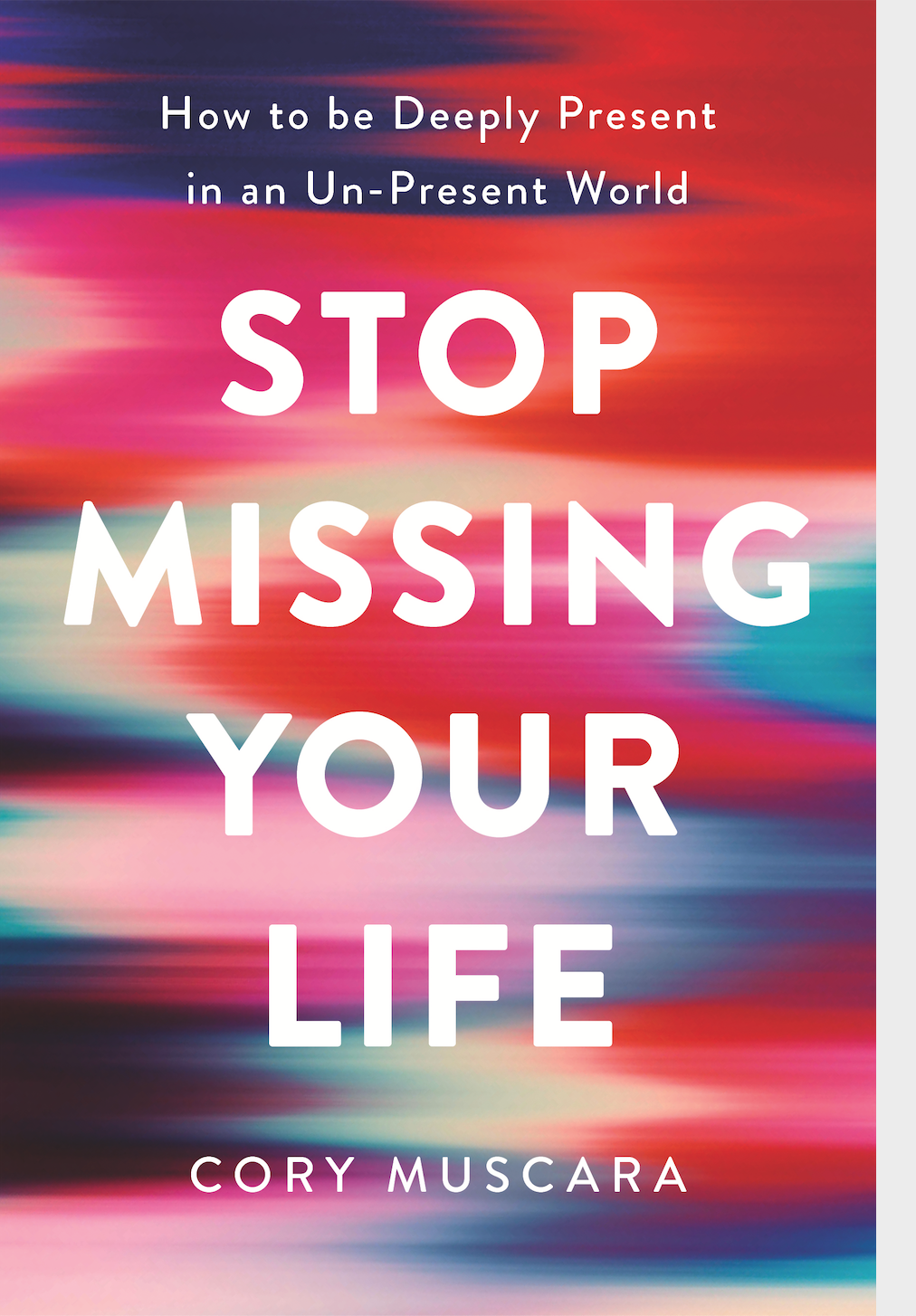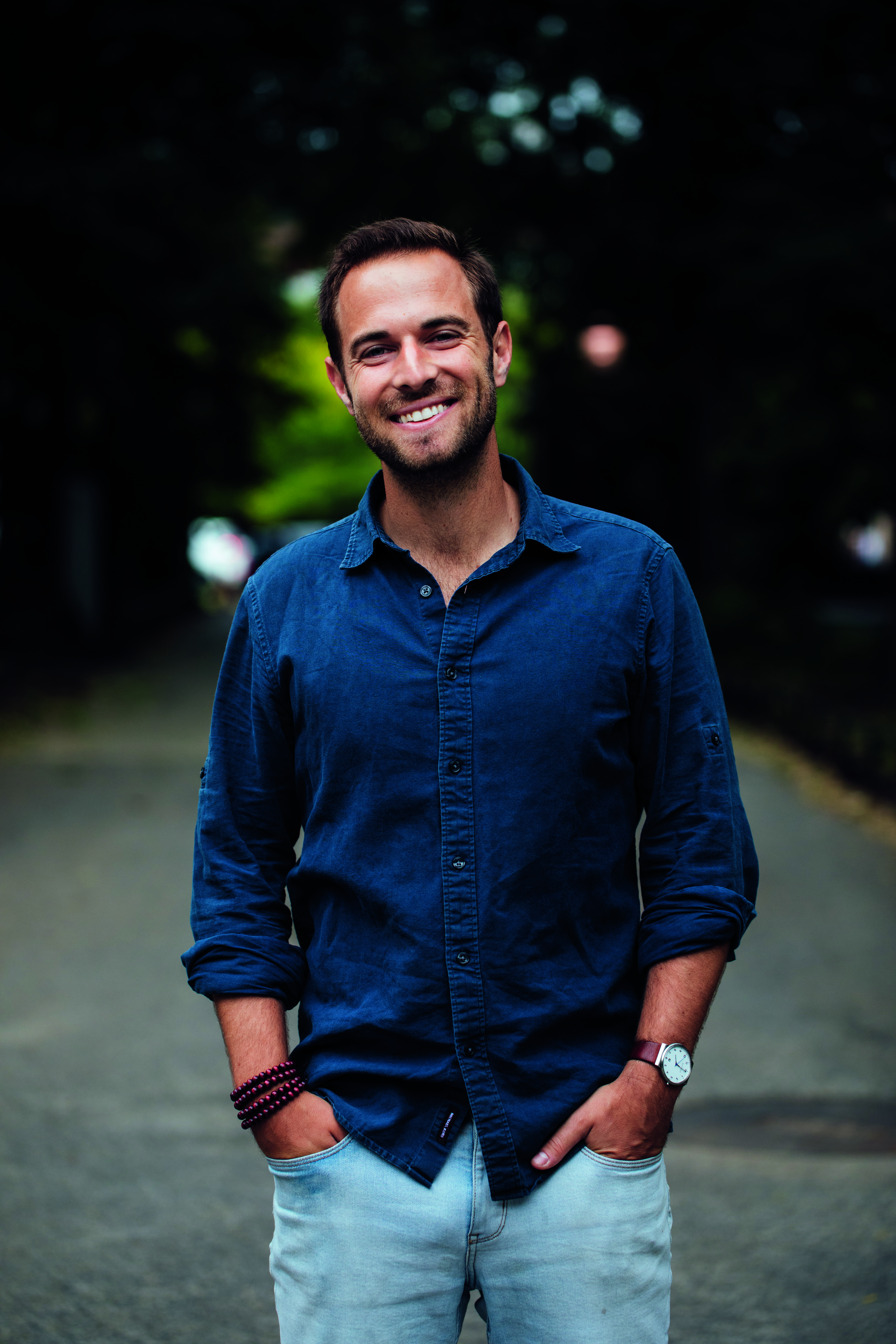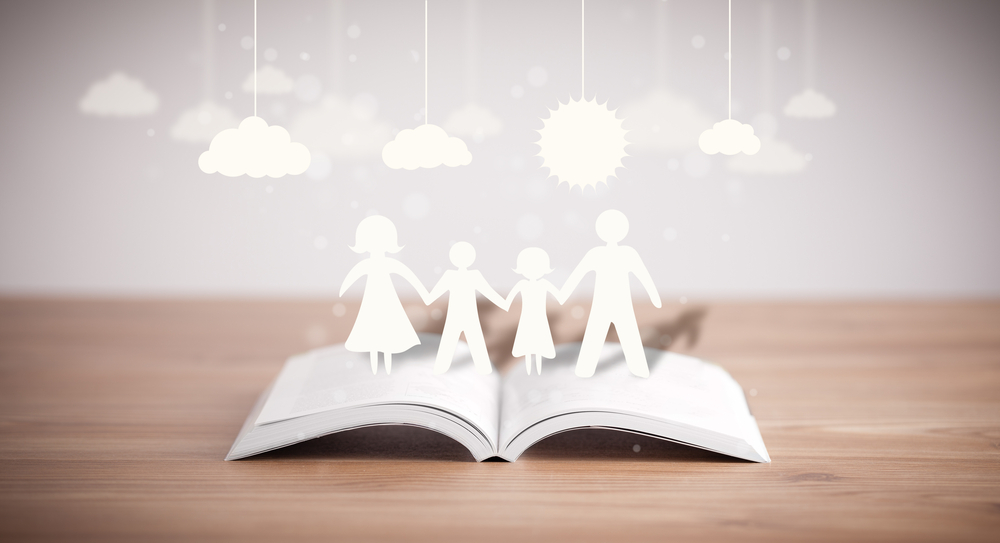As our attention stabilizes in the present, and we’re not blinded by the whirlwind of our thoughts, we develop a sort of x-ray vision into the moment. Specifically, we can more clearly see three main things happening in any moment: our experience, our awareness of the experience, and our story about the experience.
When we become aware of these things, we have more choices for how we respond.
First, we have our experience. This can be anything we perceive through our five senses or in our minds. I see a red rose. I feel tension in my shoulders. I smell smoke. I’m thinking about my childhood. Pretty straightforward.
Awareness is a bit more elusive. This is the part of us that knows what is happening as it’s happening.
For instance:
Try thinking the thought “I love jellybeans.”
Now, as you recite that in your mind, how do you know that you’re thinking about jellybeans?
Do you have to think, “Okay, now I’m thinking ‘I love jelly beans’” to know you’re thinking about jelly beans?
If you’re not sure, try thinking it ten times in a row, and as you do, notice the part of you that is watching you recite the thought “I love jelly beans.”
Do you see that there is some deeper awareness that just knows you’re thinking?
This deeper “knowing,” although subtle, is pointing to something very important and even mysterious. It’s the part of us that is not tainted or compromised by an experience that arises. As Jon Kabat-Zinn says, our awareness of fear is not fearful and our awareness of pain is not in pain. There’s something in the background that is just experiencing our life.
Psychologists often refer to it as metacognition, or our ability to think about our thoughts.
However, I don’t think that fully captures the depth of this part of ourselves. The hippies (myself included) often think of it as our higher self. The part of us that is most fundamental and most expansive; the space within us that is connected with all things and everything.
We’re getting a little trippy now. . . .
You can call it whatever you’d like: God, spirit, soul, consciousness, metacognition. For the sake of simplicity, I’m just going to refer to it as awareness—the part of us that knows what is happening.
Lastly, the middle layer, story, is the part of us that moderates the relationship between awareness and experience.
We see a dog (experience), we know we see a dog (awareness), and we think dogs are cute (story).
We’re sad (experience), we know we’re sad (awareness), and we believe being sad is weak (story).
We’re in a dark alley (experience), we know it’s dark (awareness), and we have the felt sense we should leave (story).
We get fired from a job (experience), we know we’re fired (awareness), and we’re not surprised because deep down we believe the world is out to get us (story).
There are different layers of story, as you can see. It could be a thought (a thought could be an experience or a story), a subconscious belief, a deep-seated worldview, or something noncognitive, like a felt sense in our nervous system. If the conditioning from our childhood is not to trust people, then we might not necessarily have the explicit thought “I don’t trust this person” when we meet them, it may be more feeling- or intuition-based. All of this would fall into the category of “story” because it’s inserting a subjective flavor onto an objective experience.
This is why you can have a room full of people going through the same thing, with each person having a very different experience. The experience is filtered through their story. Most of us are not experiencing our experience. We’re experiencing our story of our experience.
Check out this haiku (that’s not actually a haiku when translated to English) by the poet Matsuo Basho:
The old pond.
A frog jumps in.
Plop.
That’s it.
To me, this haiku is packed with wisdom. Doesn’t seem like much, huh?
The old pond. A frog jumps in. Plop.
Where’s the wisdom in that? It’s so . . . simple.
That’s exactly it. The wisdom is in the simplicity. The wisdom is in the naming of the absolute, fundamental elements of the experience. There is a pond, a frog jumps in it, and there is a plop. No added story, no hyperbole, no exaggeration. It’s not a tale about the heroic frog looking over the water with trepidation, taking a few steps back, then making this courageous jump with the sun glimmering over the water, the flamingos clapping and landing a perfect 10 Olympic dive.
No. It’s just the raw experience.
And although it may seem dull to experience the world like this, it’s quite the opposite, because we’re often unaware of just how much tension is created by being caught in the story of our lives, as well as how much of the inherent goodness of the moment we miss when we’re caught in the story.
I’ll give you an example.
A number of years ago, I accidentally got off the train at the wrong stop coming back from New York City. I was napping, and in my dreary state, I thought I heard the conductor call my station. I grabbed my things and jumped off the train in a panic. A few seconds later, I came to my senses and realized, “Wait, this isn’t right.” But by the time my brain told my legs to jump back on the train, the doors were shut.
Great.
It was midnight. The next train was at 5:10 a.m. I was at least a three-hour walk from home, and my phone was dead. To top it off, I had an 8:00 a.m. presentation to give that morning.
As I walked down the main road to see if I could find a pay phone, the thoughts kicked in. “If only I didn’t get off the wrong stop. I’m going to be exhausted for my presentation. I don’t have a number for a local taxi company. That’s assuming I can even find a pay phone. This is such a mess. . . . ”
In my flurry of thoughts, something caught my eye. I looked up, and in the middle of the dark sky was a full moon—the same moon I would look at during late-night meditations in Burma. It stopped me in my tracks, and like a reset button, pulled me right back into the present moment. I noticed the crickets chirping, the warmth of a June night on my skin, and the stillness of a sleepy neighborhood. When I dropped the story of everything that was wrong, the moment was actually quite peaceful. I was able to appreciate it despite still having the need to find a pay phone.
Thirty minutes later, I found a 7-Eleven, called a taxi, made my way home, did my presentation a few hours later, and life went on.
So often, the story of our minds clouds another reality of our experience. I say “another” reality, because on the one hand, yes, there was truth to the story in my mind—I needed to find a phone, I was going to get home late, and I was not going to get as much sleep as I wanted. And yes, I did wake up groggy, and my presentation was subpar.
However, in that moment, worrying about these things was not helping me find a pay phone any faster, so what was the point? When I dropped into what was actually happening, independent of what “should” be happening, I found that the moment was much less of a catastrophe than my mind was making it out to be.
If we were to put this experience into the Old Pond haiku, it might sound something like this:
The man named Cory.
He’s walking outside.
It’s dark.
Again, this isn’t even technically a haiku, but I think you get the point.
When we see the experience as something separate from the story, we’re no longer trapped by the limited perspective and boundaries of the story.
You can do this exercise, too. Take any difficult situation you’re in, and write down the core elements similar to the Old Pond haiku. What is really happening? Not your judgments about it, not what you wish were happening, but the direct experience.
The woman.
She’s sitting in traffic.
The radio is playing.
The small child on the airplane.
He’s crying.
It’s loud.
When we view the experience in its most basic form, it’s usually not as stressful as we’re making it out to be. And it makes sense, because one definition of stress is when our perceived demands are greater than our perceived resources to meet those demands. Slow down to read that again and assess your own experience of stress: Stress is when our perceived demands are greater than our perceived resources to meet those demands.
What’s the key word there?
Perceived.
Why? Because often what we perceive to be demanding is very different than what is actually demanding when we’re overwhelmed by the story we’ve created.
Take a routine experience like being in the shower. Rarely are we just in the shower. We’ve usually brought all this other stuff into the shower with us: Our boss might be in the shower, our 401(k) is in the shower, our kids are in the shower (your kids might literally be in the shower with you).
So, what happens? Your perceived demands become: “I need to have a conversation with my boss; I need to plan out my retirement (and also be pissed off that I can’t retire when I want to retire); I need to take care of the kids.”
All while you’re in the shower!
Who the heck has the resources to be able to do all of that in one moment?
No one.
But your brain is not very good at distinguishing the difference between your thoughts about those things and the reality of those things.
However, what if you drop your focus into what is actually happening in that moment? You’re just rubbing soap on your body. You’re just shampooing your hair. You’re just standing. Most of us have the resources to be able to meet those demands.
But, Cory, I do my planning when I’m in the shower! Are you saying I’m not allowed to think and plan!?
No, you can absolutely plan. But there’s a difference between being aware of a story and being lost in a story. Part of cultivating presence is (1) being able to see what is actually happening in each moment; (2) recognizing why we’re doing what we’re doing; and (3) being able to choose if that’s what we actually want to be doing, rather than being blindly pushed around by the chaotic story of our minds.
And listen, sometimes the story of your life might be great: “I’m an awesome mother,” “I will always love my children,” “I’m a highly motivated person who never quits,” “My life is going to get better.”
You can use story to your advantage—to feel more positive, to help motivate you, to keep you accountable—but my encouragement is to hold it lightly. Because as soon as we attach ourselves and our identity to a story, it locks us into an expectation for how things should be.
When we hold ourselves or our lives to some predetermined plan, we’re no longer responding in the aliveness of the moment; rather, to past ideas about how things should be. Sometimes those past ideas are important reminders of what our values are, and other times they may be outdated or limited, therefore keeping us bound to a way of being that is no longer true to who we’re becoming.
When we drop out of our story for how things should go, we get to respond in real time, inspired by what feels true and right in this moment, enabling us to adapt, grow, and move fluidly through our moments like water.
The following are specific ways to cultivate the focus pillar of presence in both your meditation practice and in daily life. I will include these sections at the end of each of the next three chapters on the pillars of presence to aid in their cultivation. You can also find video descriptions of many of these strategies in the online resources: www.stopmissingyourlife.com/resources.

Excerpted from the book Stop Missing Your Life by Cory Muscara. Copyright (c) Cory Muscara by Hachette Books. Reprinted with permission of Hachette Books, New York, NY. All rights reserved.
Follow us here and subscribe here for all the latest news on how you can keep Thriving.
Stay up to date or catch-up on all our podcasts with Arianna Huffington here.


